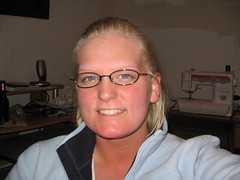The New York Times
Monday, March 19th, 2007
pgs C1&C2
The Story
The Summary: Crowdsourcing, a type of wiki for journalism, has become an experiment headed by Jay Rosen, of New York University.
A new experiment wants to broaden the network to include readers and their sources. Assignment Zero (zero.newassignment.net/), a collaboration between Wired magazine and NewAssignment.Net, the experimental journalism site established by Jay Rosen, a professor of journalism at New York University, intends to use not only the wisdom of the crowd, but their combined reporting efforts — an approach that has come to be called “crowdsourcing.”
The idea is to apply to journalism the same open-source model of Web-enabled collaboration that produced the operating system Linux, the Web browser Mozilla and the online encyclopedia Wikipedia.
This caught my eye (obviously) because it is the perfect example of my (hopefully) future profession and the principles of this class (Weblogs and Wikis) coming together in an educational experiment.
In this instance, the topic will be be crowdsourcing, so the phenomenon will be used to cover the phenomenon itself. Citizens with a variety of expertise — the “people formerly known as the audience,” as Professor Rosen describes them — will produce work to be iterated and edited by experienced journalists.
“This is designed as a pro-am approach to journalism. I think I saw possibilities here that others did not, and you can only do so much writing about it,” Professor Rosen said. “There is so much up for grabs right now, and the barriers to entry, the costs of doing something have become low enough to where it seemed it was best to just give it a try.”
The information will be provided by they general public, but it will still be formed into a readable article by someone who is trained and gifted enough before it is formally published (or so I think)
Of course, there’s an economic rationale, as well. Many hands make light work and cheap ones if they belong to volunteers. But Gannett is also betting that people will be more compelled to stay with a product they helped make. (Ms. Carroll said that jobs will not be cut, but redefined. We’ll see about that.)
I think that this is a great tool for learning. An opportunity for those such as myself to practice their craft. The gathering information part is the scary part for me. I'm really good about the writing part. Give me a police report and I can give you an article, but ask me to interview the victim, I might just be scared sh*tless. If I the public provides resources I would definately find it easier to write something, I can sit at my desk and pump it out in no time.
“We are not creating a robot that is some kind of journalism machine,” said Ms. Sandler, the editor of the project. “This is not a death knell or a new utopia.”
“It’s like throwing a party,” she added. You program the iPod, mix the punch and dim the lights and then at 8 o’clock people show up. And then who knows what is going to happen?”
I think I'd need to see the results before I can form a fair opinion, but I like the idea, it's definately worth experimenting with. There's a portion of the public who wishes they could be journalist, this allows them to itch that scratch without completely overhauling their lives, it also eases up journalists, creating a source for quotes and first-hand accounts of events.


No comments:
Post a Comment